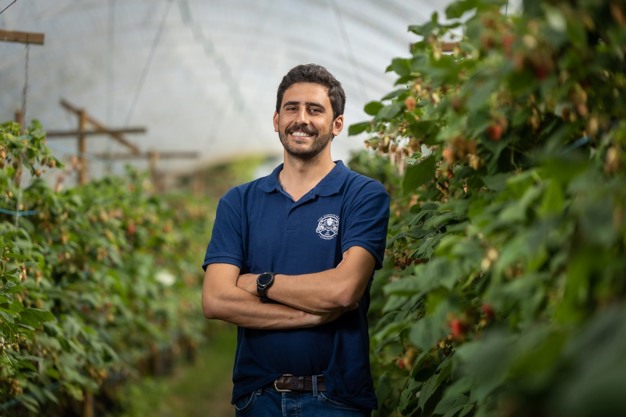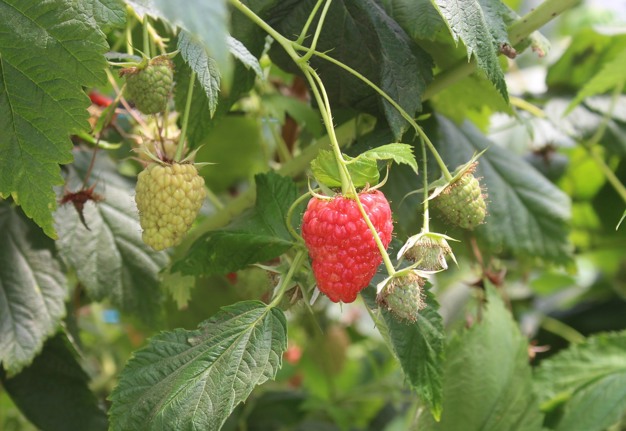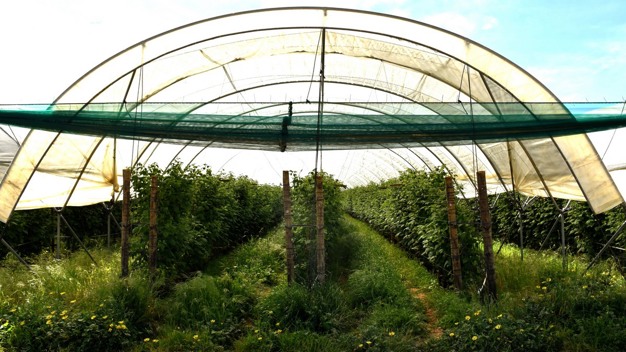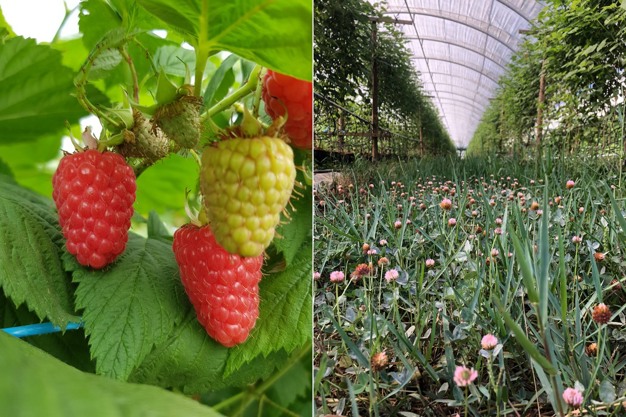The Portuguese raspberry season has been excellent so far, says Daniel Portelo, Operations Director for The Summer Berry Company Portugal, which is part of The Summer Berry Company Group: "The raspberry season has been going really well. The fruit quality has been very high, and the weather conditions have been favorable. This year, we have consolidated our position through an increase in the production of the Amalia Rossa variety, and this spring the crops have exceeded our expectations. The Summer Berry Company holds the exclusive right to market Amalia Rossa grown in Portugal within the UK and Republic of Ireland and is entitled to a minimum of 75% of Amalia Rossa planting area in Portugal. We have recently started collaborating with associated growers by receiving, packing, heat-sealing and selling fruit from these partners. We expect this to be a journey of mutual collaboration and learning, which will allow us to further increase our production area."

Thanks to its own means of collecting water, The Summer Berry Company Portugal is decreasing its dependency on the local dam, Portelo explains. "We had a rainy start of spring, which was good for increasing the water availability, we have reservoirs dedicated to rainwater collection. In 2023, 53% of the water used in our farms in Portugal was water that we either collected or recycled using a recirculation system, helping to decrease our dependency on the local dam. The rain was also good for increasing vegetation areas and boosting biodiversity around the production areas. The benefits of water availability, increased relative humidity and the added value it brings for auxiliary organisms are advantages that cannot be underestimated."

Portelo states that the Portuguese exporter has a focus on European markets, but also branches out to the Middle-East: "The current season is very much in line with previous seasons, we are planning to harvest around 4,000 tons of raspberries, with some adjustments on the varietal mix and the addition of 13ha produced by our associated growers. UK, Germany and France are our main destination markets currently, but we also export to other European countries and to the Middle East."

According to Portelo, the Portuguese domestic market could also be interesting to expand in. "Our focus is to keep supplying our clients with premium berries, produced in an ethical and environmentally friendly way. If we consider geographical aspects only, we'd like to further develop the Portuguese market for proximity reasons and to enlarge access to our fruit to local consumers. We produce raspberries all year round, and for this season and all seasons, our expectations and goals revolve around quality remaining high, the climate continuing to be favorable, our employees feeling motivated and valued in their workplace and our customers staying engaged with our product."

The Summer Berry Company Portugal is committed to their sustainability program and pest management approach: "It has been rewarding to work with reduced use of insecticides and herbicides, diminishing their use by around 80% since 2018 without compromising plant productivity. Being at the forefront of pesticide regulation, we are well-prepared for stricter regulations as more products leave the market and fewer new ones are introduced. Relying on biodiversity in pest management makes our production less susceptible to regulatory changes, addressing reputational risks as clients demand even less pesticide usage than current EU regulations allow. Attention to biodiversity and sustainability is expected to grow among both clients and investors. We have achieved these results by developing a resilient ecosystem, where weeds have become companion plants, serving as habitats for native insects. These native insects have become auxiliary organisms, acting as predators of the pests that threaten our plants. The lesson here is clear: the more we let nature flourish, the more benefits it gives in return," Portelo concludes.
For more information:
Milena Araújo
The Summer Berry Company Portugal
Tel: +351 912667710
Email: [email protected]
www.summerberry.co.uk










